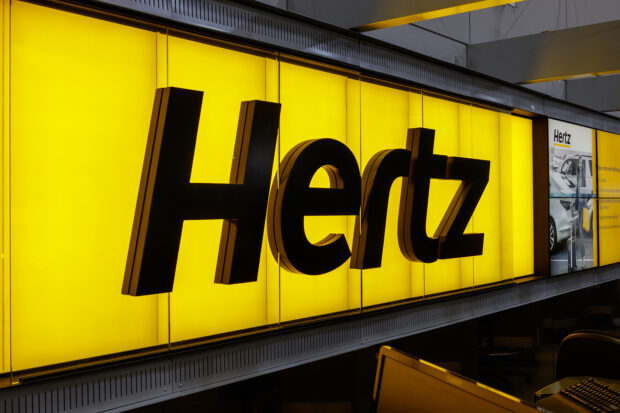Hertz Corp., battling hundreds of customers who say they were falsely arrested for auto theft after renting cars, was ordered by a federal judge to disclose how many renters it accuses every year.
U.S. Bankruptcy Judge Mary Walrath sided with advocates for 220 people suing Hertz who argued more details about Hertz’s internal anti-theft program should be public.
In various documents filed in federal court in Wilmington, Del., the car renter has demanded that data on how many theft reports it files every year be blocked out of court papers to prevent rivals from using the information to tarnish Hertz’s reputation.
The U.S. Trustee, which monitors bankruptcies for the Justice Department, CBS News and advocates for people suing Hertz for false arrest argued that the information should be made public.
Court documents show that some of the customers who rented cars were jailed and in at least one case held at gunpoint just hours after paying for a rental.
The false arrest claims often involve long-term rentals, some set up directly by the customer, others through an auto insurance company, according to court documents. If something goes wrong with a renewal payment, or there’s some other problem, Hertz may report the renter to the police saying the car has been stolen, documents show. Afterward, Hertz charges the renter’s credit card or debit card and collects whatever was due, lawyers for the suing renters said in court filings.
In order to prove the false arrest claims aren’t isolated incidents, lawyers suing Hertz have been collecting data on how often the rental company files police reports against customers.
Hertz didn’t respond to emails requesting comment.
Bankruptcy Claims
Those who claim Hertz had them wrongly arrested have filed claims in bankruptcy court demanding to be paid like other creditors of the company. Walrath oversaw Hertz’s Chapter 11 reorganization, which ended last year with a plan to pay creditors in full.
The false arrest claims could cost Hertz hundreds of millions of dollars, according to advocates for those suing the company.
The fight is part of a broader dispute about how to handle those claims from former renters who say they were wrongly arrested because of an alleged error by Hertz.
As is typical in big, complicated Chapter 11 cases, Hertz left behind a shell in bankruptcy to help administer creditor payouts and resolve any legal disputes not covered by its reorganization plan.
CBS previously reported that Hertz said the “vast majority” of cases involve renters who were weeks or months overdue on returns and authorities are brought in only after “exhaustive attempts” to reach a customer.
The case is Hertz Corp. 20-11218, U.S. Bankruptcy Court, District of Delaware (Wilmington).
(Updates with details of why Hertz asks police to arrest customers in the sixth paragraph.)





















 Reinsurance Program Could Wipe Out Need for Calif. FAIR Plan: Legal Exec
Reinsurance Program Could Wipe Out Need for Calif. FAIR Plan: Legal Exec  Why Claims AI Build vs. Buy Decisions So Often Miss the Mark
Why Claims AI Build vs. Buy Decisions So Often Miss the Mark  Is Risk the Main Ingredient in Ultra-Processed Food?
Is Risk the Main Ingredient in Ultra-Processed Food?  State Farm Inked $1.5B Underwriting Profit for 2025; HO Loss Persists
State Farm Inked $1.5B Underwriting Profit for 2025; HO Loss Persists 